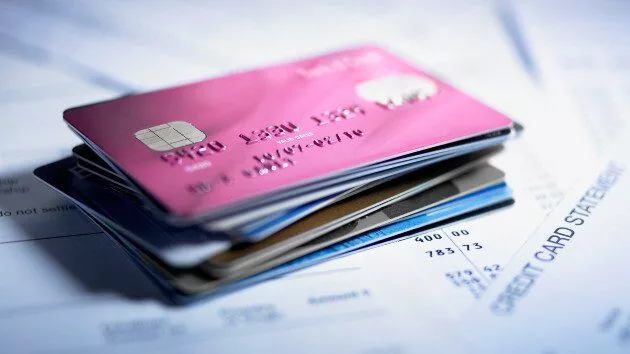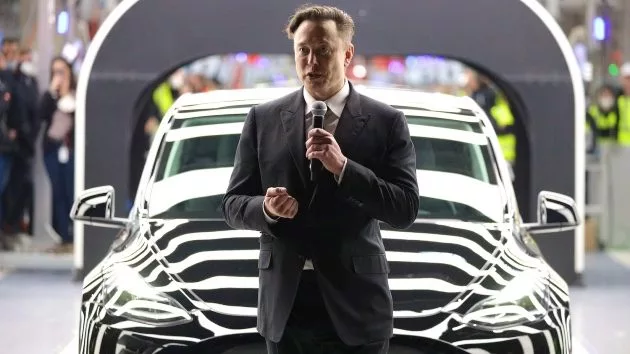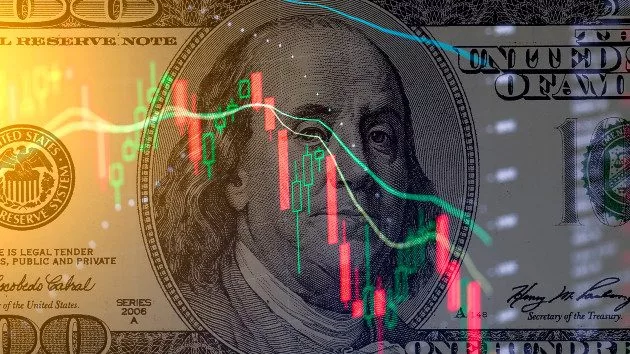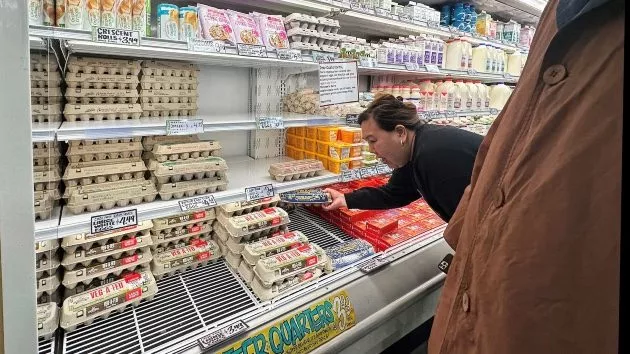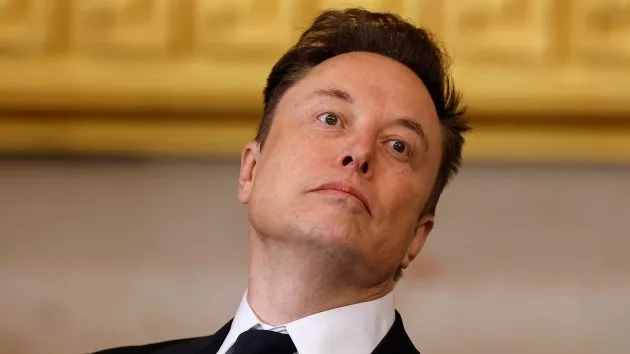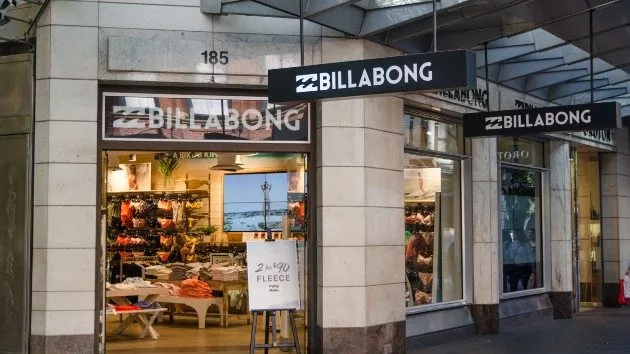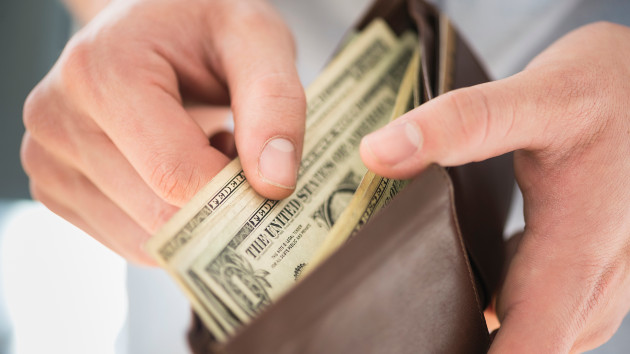
(NEW YORK) — As the midterm elections begin, sky-high prices for essentials like food and gasoline have become a major line of criticism leveled at Democrats, who control the White House and Congress.
In fact, the issue may be enough to drive the incumbent party out of power — just as it has helped fuel government turnover across the globe, some experts told ABC News.
Global inflation during the pandemic era has helped drive public opposition toward incumbent parties and politicians, contributing to shifts in power across a host of countries over the past year, some financial experts told ABC news.
While experts cautioned against generalizations that diminish other issues or political dynamics at play within a given country, they noted how frustration over living costs has animated efforts to change political leadership in ways that resemble voter sentiment in the U.S. leading up to the midterm elections.
“This is a global inflationary shock – many countries are seeing inflationary pressure they haven’t seen since the 1970s and 1980s,” Robert Kahn, the managing director of global macro-geoeconomics at the New York-based Eurasia Group, told ABC News. “It’s driving a level of unhappiness among populations that’s definitely putting pressure on governments.”
“A lot of what we’re seeing and feeling is a U.S. manifestation of what everyone else is dealing with,” he added.
In Brazil, where President Jair Bolsonaro cut taxes on fuel and electricity in an effort to slash prices over the months preceding an election that concluded in October, the nation nevertheless replaced him with a leftwing challenger.
Meanwhile, in England, Prime Minister Liz Truss responded to the highest inflation in four decades with an economic policy centered on tax cuts and energy price controls. Her tenure in office lasted just 44 days before market reaction and political disarray led to her stepping down.
Over the summer, Colombia elected the first leftist president in its history as the inflation rate soared near 10%. While in Sri Lanka, a couple months prior, a mass uprising led to the removal of the country’s sitting president, as protesters cited frustration over the fastest inflation rate in Asia.
“When essential prices explode in ways that people can’t pay them anymore, it’s like some basic social contract breaks,” Isabella Weber, a professor of economics at the University of Massachusetts, Amherst, told ABC News.
“People go to work and earn money and they can buy stuff that covers their basic needs on the market,” she added. “If they feel their wage isn’t sufficient to cover these basic needs, then this basic contract starts to crumble for too many people, which brings social and political consequences.”
The pattern this year matches a high rate of leadership change amid inflation crises around the world over the last half century, according to research authored by Kahn and Eurasia Group CEO Maziar Minovi. Examining 57 inflation shocks since 1970, they found government turnover in 58% of cases.
Further, when there was an election during or within two years of an inflation shock, it led to a change in government in roughly three out of every four instances, the study found.
To be sure, at least one expert said it’s too difficult to discern the political impact of inflation alongside other potential factors driving voter sentiment worldwide.
Carsten Kowalczyk, a professor of international economics at the Fletcher School at Tufts University, acknowledged the role that inflation has played historically in contributing to government turnover, but he said the political implications of current price hikes remain uncertain.
“It’s not clear how much inflation has really affected the outlook of folks,” he told ABC News. “Inflation may affect people differently.”
As with other global economic problems, inflation comes down to an imbalance between supply and demand.
Billions across the globe facing lockdowns replaced restaurant or leisure expenditures with couches and exercise bikes. The surge in demand followed a pandemic-induced flood of economic stimulus. Moreover, that stimulus brought about a speedy economic recovery from the March 2020 downturn, triggering a hiring blitz.
But the surge in demand for goods and labor far outpaced supply, as COVID-related bottlenecks slowed delivery times and infection fears kept workers on the sidelines.
In turn, prices and wages skyrocketed, prompting sky-high inflation. The war between Russia and Ukraine has exacerbated the price hikes, worsening a global shortage of oil and food. Such price increases have bedeviled countries across the globe, some of which have suffered much worse inflation than the U.S.
“We made a tradeoff in 2020: We’re going to save the economy and save people’s jobs by pumping trillions into the economy,” Aswath Damodaran, a professor of finance at New York University. “This inflation is the tradeoff. They were effectively delaying the pain that COVID brought to the global economy.”
Despite the global nature of inflation and limited policy levers available to President Joe Biden to reverse it, Democrats are being held accountable for a cost of living crisis experienced while they’ve controlled Congress and the White House, some experts said.
The share of likely voters who say economic issues are the most important concerns facing America stands at 44%, a jump from 36% who said so in July, according to a New York Times/Siena poll released last month. Those economy-focused voters overwhelmingly preferred Republicans, by more than a two-to-one margin, the poll said.
In a similar poll, released by NBC News in September, voters favored Republicans by nearly 20 percentage points on the issue of the economy.
“If you’re an incumbent, you get credit for things that go well, even if they’re not your fault,” Kenneth Rogoff, a professor of economics at Harvard University who studies global inflation, told ABC News. “You get blame for things when they go badly, even if it’s not your fault.”
On the campaign trail, many Republican candidates have criticized Biden and Congressional Democrats for expansive spending, which Republicans say directly led to the spike in prices. Specifically, the Democrats have faced criticism for the American Rescue Plan, a $1.9 trillion economic stimulus measure signed into law by Biden in March 2021 in response to the pandemic.
While the Biden measure comprised a major spending package, former President Donald Trump backed even greater coronavirus-related spending, signing into law a package in December 2020 worth $2.3 trillion.
Inflation appears to fuel discontent with incumbents, regardless of whether they pursue liberal or conservative policies, said Kahn of the Eurasia Group.
“There is a tendency in the American economic debate to see what’s happening in the U.S. as unique to the U.S.,” Kahn said. “It’s right to say that it’s playing out differently in the U.S. than it is elsewhere but it’s a part of the same global phenomenon.”
“In the face of a global shock, there is a vote-the-bums-out element to this,” he added. “It punishes whoever is in power, whether left or right.”
Copyright © 2022, ABC Audio. All rights reserved.



